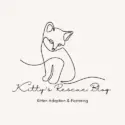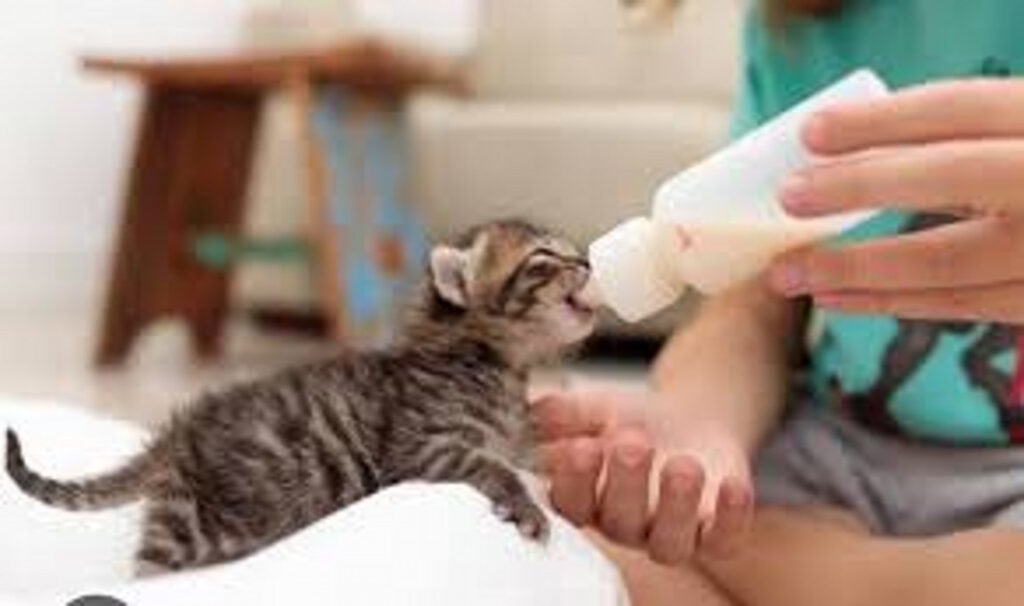Bottle feeding a kitten is a rewarding but demanding task. Bottle kittens, those too young to be weaned from their mother’s milk, require constant care and a carefully considered environment to thrive. Their delicate health and vulnerability necessitate a safe, warm, and stimulating space tailored to their specific needs. Failing to provide this can lead to health complications and even death. Creating the ideal space for bottle kittens is crucial for their well-being and successful development into healthy, happy cats.
Creating a Safe Haven for Your Bottle Kittens
The first step in providing optimal care for bottle kittens is establishing a dedicated space. This shouldn’t be a random corner; it should be a carefully planned area designed for their comfort and security. Think of it as their own little nursery. Location is paramount—choose a quiet area of the house, away from high-traffic zones, loud noises, and potential hazards like electrical cords or cleaning supplies. The ideal temperature should mimic a mother cat’s body warmth — around 85-90°F (29-32°C) for the first few weeks, gradually reducing as they grow. A heating pad set on low under a soft blanket, or a specialized kitten warmer, can help maintain this temperature consistently.
However, always monitor the temperature carefully to prevent overheating. Never place the heating pad directly under the kittens; always use a soft barrier. Regularly check the kittens’ body temperature to ensure they are comfortable.
Nest Design for Bottle Kittens: Comfort and Security
The kittens’ nest should be small and snug, mimicking the security of a mother cat’s embrace. A shallow, cardboard box lined with soft, absorbent, and washable materials like fleece blankets is a good starting point. Avoid anything fluffy or loose that could be ingested and cause blockages. The bedding should be easily cleaned and changed regularly to maintain hygiene. Multiple shallow boxes, especially with a litter box for elimination, may be necessary for multiple kittens, granting each individual safe havens.
It’s imperative to ensure the nesting space is sufficiently spacious for the kittens to move around comfortably, but not so large that they feel insecure or lost. As they grow, you’ll need to adjust the size of the nest accordingly.
Hygiene and Cleanliness: A Crucial Aspect
Maintaining impeccable hygiene is non-negotiable. Bottle-fed kittens are susceptible to infections, and a clean environment significantly minimizes this risk. Their living area needs to be cleaned thoroughly and regularly – ideally several times a day. Use a safe, kitten-friendly disinfectant and always thoroughly dry all surfaces before returning the kittens to their nest. Their bedding must be replaced daily or more frequently if soiled. Handwashing before and after handling the kittens is equally crucial to prevent the spread of germs.
Remember, thoroughness is key. A seemingly small detail like a missed spot of soiled bedding can negatively impact these vulnerable animals.
Stimulation and Socialization: Preparing Them for Life
While warmth and hygiene are essential for survival, providing appropriate stimulation and socialization is crucial for the kittens’ healthy development. This doesn’t mean keeping them constantly entertained with loud toys – in fact, the opposite is true for very young kittens. Gentle handling, frequent petting, and engaging in quiet activities around them allows them to develop appropriately.
As they grow stronger, you can introduce age-appropriate toys, but keep the interaction short and sweet. Aim for a balanced routine between rest and gentle play.
Monitoring Your Bottle Kittens’ Well-being
Constantly monitoring the kittens’ health is vital. Observe their feeding patterns, bowel movements, and overall activity levels. Any changes in behavior, such as lethargy, refusal to feed, or unusual vocalizations, should be immediately addressed by a veterinarian. Weighing the kittens daily will show you if they’re gaining weight consistently, a key indicator of their health. Regular veterinary checkups are also crucial, even if it seems like they’re thriving. Early detection and intervention are critical when it comes to their wellbeing.
Creating a nurturing and safe haven for Bottle Kittens requires dedication, attention to detail, and a deep understanding of their delicate needs. By meticulously attending to their habitat, hygiene, and welfare, you ensure that these tiny creatures have the best possible chance of growing into healthy, confident adult cats. Remember, your effort and care directly translate into their well-being and future lives.

